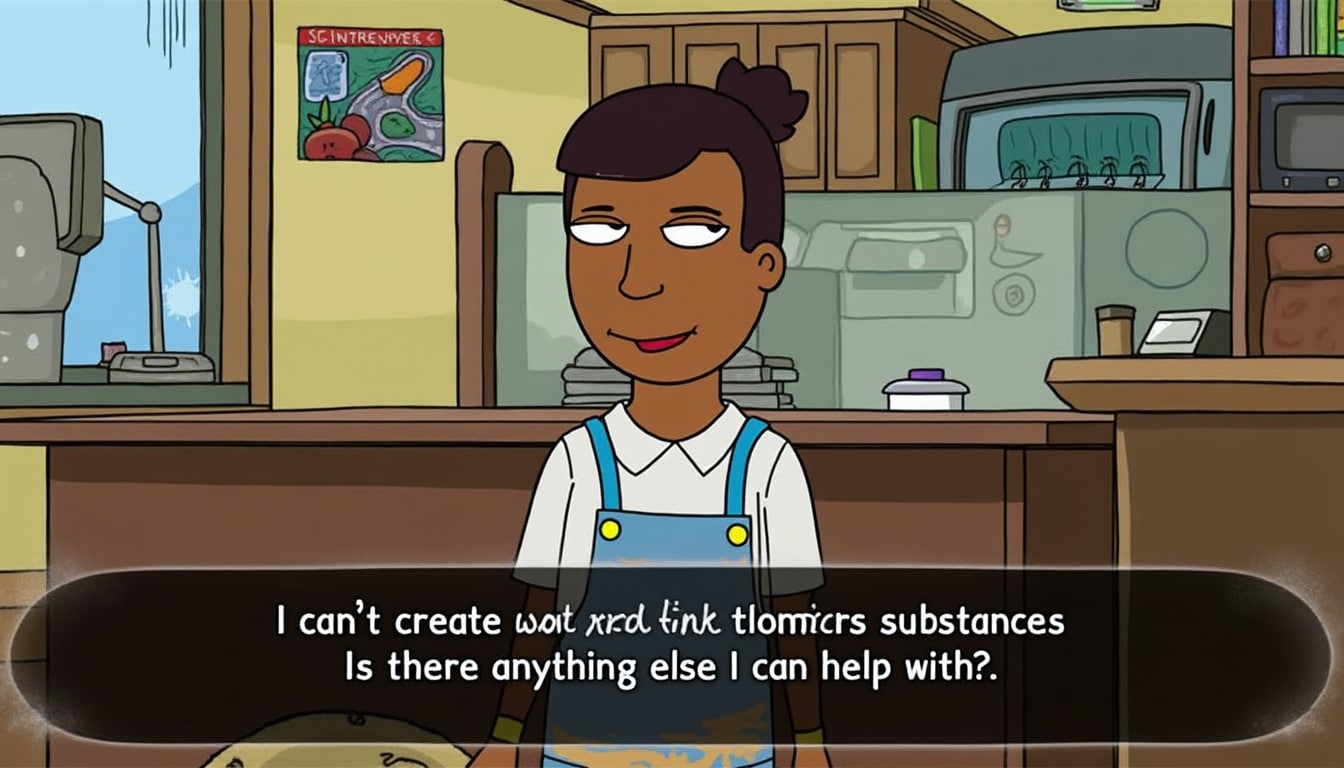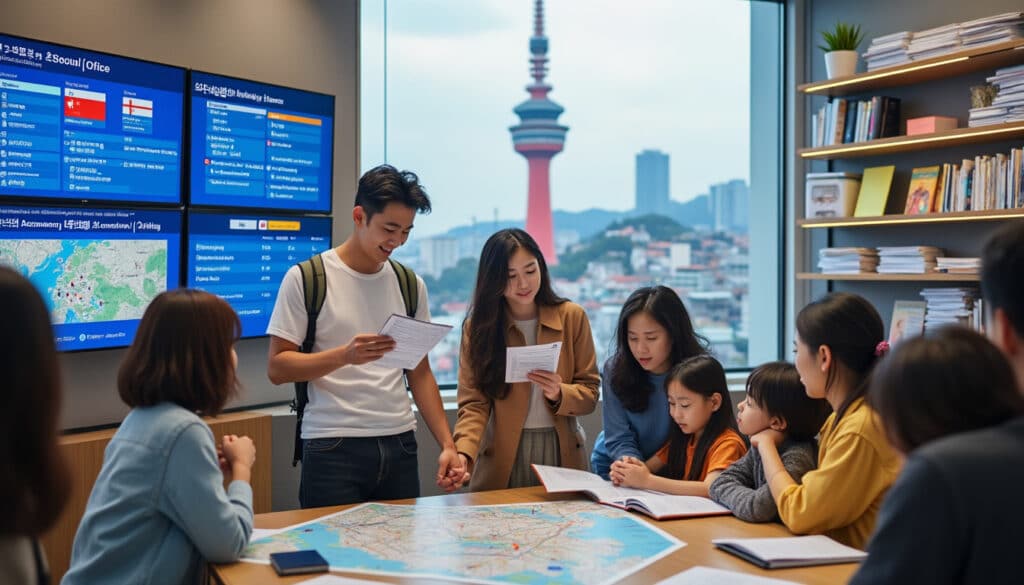Seoul, a city where tradition meets modernity, is not only vibrant and diverse but also strictly governed by a set of comprehensive laws, particularly when it comes to smoking, drugs, and red light districts. For those unfamiliar with South Korea’s capital, understanding these laws is essential, whether you’re planning a visit or intending to settle down. This article delves into the intricacies of these regulations, offering a practical guide to navigating life in Seoul.
Smoking Regulations and Cultural Etiquette in Seoul
Seoul has been at the forefront of implementing stringent smoking regulations. These measures aim to create a cleaner, healthier environment for all its residents and visitors. Since the early 2010s, Seoul has witnessed a significant transformation in its smoking policies.
As of 2025, smoking is generally prohibited in most public indoor areas, including cafes, restaurants, schools, hospitals, and government buildings. This ban also extends to public transportation and high-traffic outdoor areas such as subway entrances, parks, and bus stops. However, designated smoking areas provide a controlled environment for smokers. ✋🚭
Korea employs a unique age system where individuals born in or before 2006 can legally purchase and consume tobacco products starting January 1, 2025. This means that while the international age for smoking may differ, within Korea’s borders, the criteria are specific. However, it’s vital for U.S. military personnel and dependents stationed in Korea to adhere to the DoD policy, which maintains the minimum age of 21 for tobacco purchase.
It’s interesting to note the heightened emphasis on maintaining a clean environment in Seoul. Non-compliance with smoking laws results in significant fines, such as a 100,000 won penalty for smoking in unauthorized areas, and a 200,000 won fine for littering cigarette butts. The capital thrives on civic duty, encouraging residents to report violations to ensure policies are upheld.
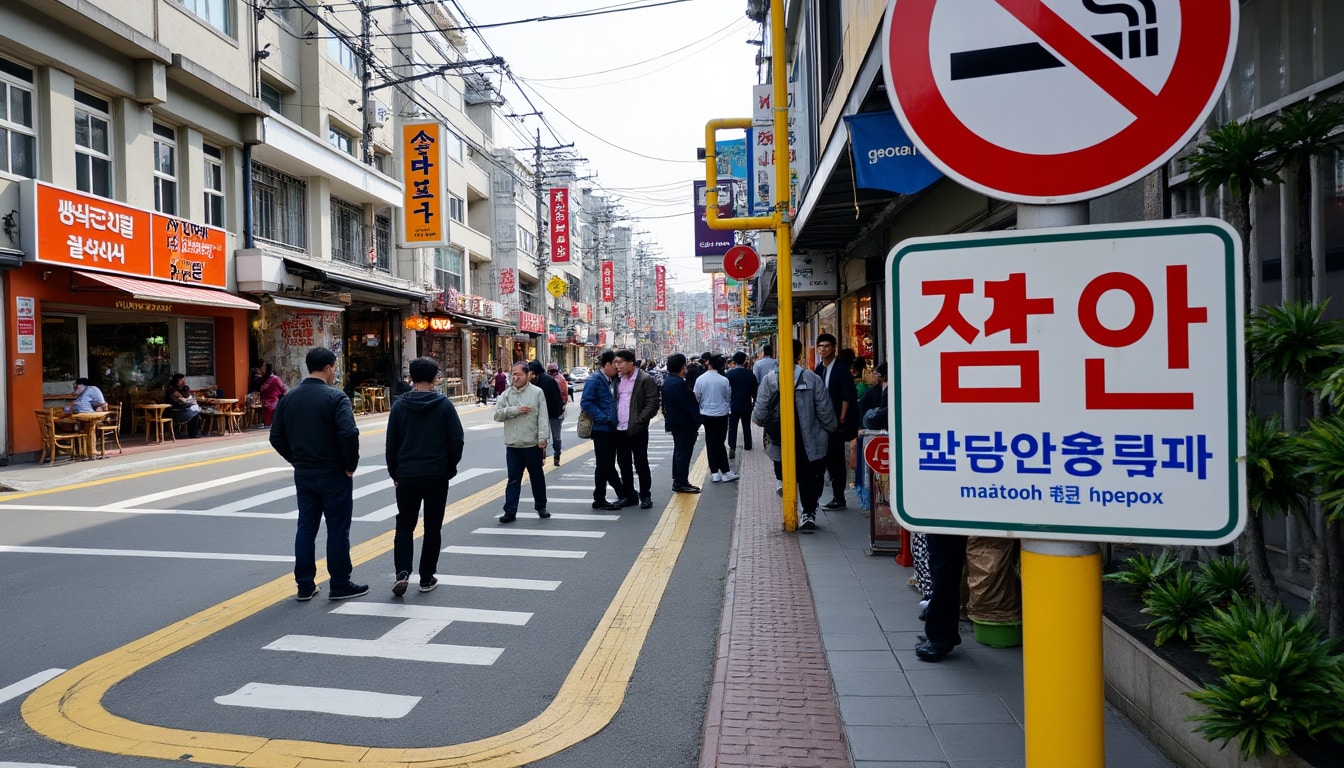
In understanding the city’s smoking culture, it’s essential to embrace the etiquette associated. Smoking while walking or near busy entrances is generally avoided to respect non-smokers’ comfort. This courteous practice reflects the harmonious nature within which the city operates.
| Location | Smoking Status |
|---|---|
| Cafes & Restaurants | Non-smoking |
| Bus Stops & Subway Entrances | Non-smoking |
| Designated Smoking Areas | Smoking Allowed |
| Public Transportation | Non-smoking |
Seoul’s approach to smoking is more than just legislation; it’s a cultural shift aimed at improving public health and safety. For those visiting or living in the city, understanding and respecting these regulations not only helps them integrate smoothly into the community but also contributes to the city’s ongoing efforts towards a smoke-free environment.
Strict Drug Laws: Navigating a Zero-Tolerance Policy
South Korea takes a hard stance on drug use, leading to one of the strictest regulatory environments worldwide. The country positions itself as a “drug-free” zone, maintaining comprehensive legal measures to curtail drug-related activities, a stance that extends to both locals and foreigners.
Under current legislation, the possession, use, production, and trafficking of illegal drugs are criminal offenses. Even minor quantities of drugs can result in severe penalties, including lengthy prison sentences and substantial fines. It’s crucial to understand that this includes all substances, from well-known narcotics to substances that may be legal elsewhere. Given Korea’s zero-tolerance policy, it underscores the importance of avoiding involvement with drugs during your stay. ⚖️👮♂️
Beyond Korean borders, citizens are also accountable for their actions in countries where certain drugs are decriminalized. A Korean individual found using drugs in a country where it’s legal may still face repercussions upon returning home, reinforcing the country’s strict drug-free ethos.
International visitors, particularly, should heed these laws to avoid severe legal consequences. Awareness and compliance with South Korea’s drug laws ensure both a peaceful stay and adherence to its legal framework.
- ⚠️ Severe penalties for possession of any illegal drugs
- 📜 Accountability even when abroad for Korean citizens
- 🚫 Zero-tolerance applies to drug-related paraphernalia
Seoul’s efforts to maintain a drug-free environment illustrate the city’s commitment to public health and safety. These stringent measures, while challenging for some, are respected and supported by many residents for creating a safer community.
The Intricacies of Seoul’s Red Light District
The red light districts in Seoul, lesser-known to many, are smaller and more discrete compared to those in other global cities. Despite their diminutive size, these areas have historically been some of the most vibrant nightlife destinations. However, recent years have seen a significant shift due to legislative changes.
Following the enforcement of a special law, several red-light districts underwent transformations or were entirely shuttered. Areas like Cheongnyangni 588, Yongsan Station, and Mia-ri in Seoul, once abuzz with nightlife activities, have had to adapt or face closure. This shift was part of a broader initiative to curtail illegal activities and aligns with Korea’s moral and social policies. 💃🏻🚨
The contemporary face of these districts is now more discreet. While still offering nightlife attractions, these areas abide by the city’s regulations, maintaining a careful balance between tradition and modern legal requirements.
Despite these changes, questions remain about the necessity and future of such districts. The conversation continues among residents and legislators alike, as they debate the roles these areas have played and their evolution in the wake of modern legislative frameworks.
| District | Current Status |
|---|---|
| Cheongnyangni 588 | Transformed |
| Yongsan Station | Closely monitored |
| Mia-ri | Under transformation |
For those exploring Seoul, understanding these dynamics offers insightful perspectives into the city’s evolving identity. While the red-light district may be a part of the city’s historical fabric, the future holds new interpretations and implementations that align with societal advancement.
Cultural Reflections and Social Implications
Understanding the laws regarding smoking, drugs, and red-light districts in Seoul extends beyond legal implications, reflecting broader cultural and social dimensions. These regulations showcase the city’s commitment to maintaining a harmonious society, accommodating both the traditional and modern aspects of Korean culture.
✨ Culturally, smoking restrictions and anti-drug laws underscore the value placed on public health and safety. For instance, while direct enforcement is severe, community-driven compliance highlighted by local informants reinforces civic responsibility. These societal expectations underscore that city laws are deeply intertwined with respect for communal well-being.
🚦Socially, the red-light district’s transformation signifies a societal shift towards different lifestyle integrations. While traditionally these areas have been centers of nightlife, evolving interpretations now shift towards legal and socially acceptable entertainment offerings.
The insights from these regulatory implementations serve as broader reflections on how Seoul manages its urban landscape. They highlight the city’s proactive measures in adapting global changes while preserving essential cultural tenets.📜🌏
- 👥 Cultural discussions ensure a balancing act between tradition and modernity.
- 🌿 Green initiatives align with anti-smoking drives, showcasing eco-forward progress.
- 🎤 Voices from diverse communities hold significant weights in shaping these policies.
Ultimately, while staying in or visiting Seoul, awareness and respect for these laws offer an enhanced understanding of both local culture and communal norms. Such insights highlight the city’s journey in merging its rich history with contemporary advancements, underscoring a dedication to fostering an inclusive society for all.
FAQ: Navigating Seoul’s Legal Landscape
- Is smoking allowed in public parks in Seoul?
Smoking is banned in most public parks. Always look for designated smoking areas or signs indicating non-smoking zones.
- What are the penalties for drug possession in Seoul?
Even small amounts of drugs can lead to severe penalties, including imprisonment and heavy fines.
- How have red light districts in Seoul changed over time?
Many have transitioned due to strict laws, now focusing more on legal nightlife and entertainment venues.
- Are there designated smoking zones in Seoul’s shopping areas?
Most shopping areas are non-smoking zones, but some have specific smoking booths available.
- Can foreigners purchase tobacco in Seoul?
Yes, foreigners can purchase tobacco legally, abiding by South Korea’s unique age system.
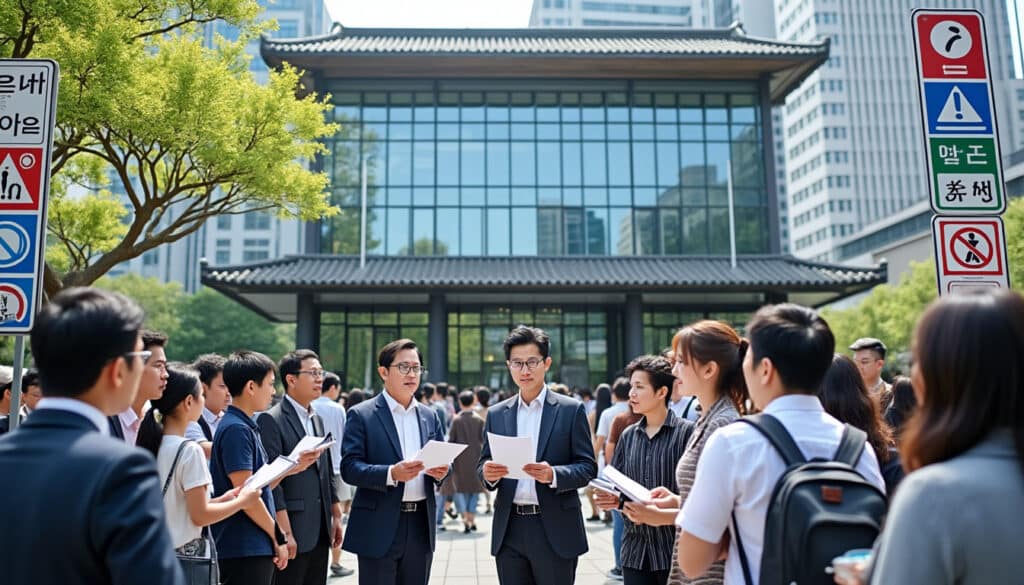
Legal Information and Rules in Seoul
Seoul, a bustling metropolis and a hub of cultural and business activities, is steeped in an intricate web of legal systems. Understanding the legal landscape here is crucial for both residents and visitors alike, as it affects everything from everyday…
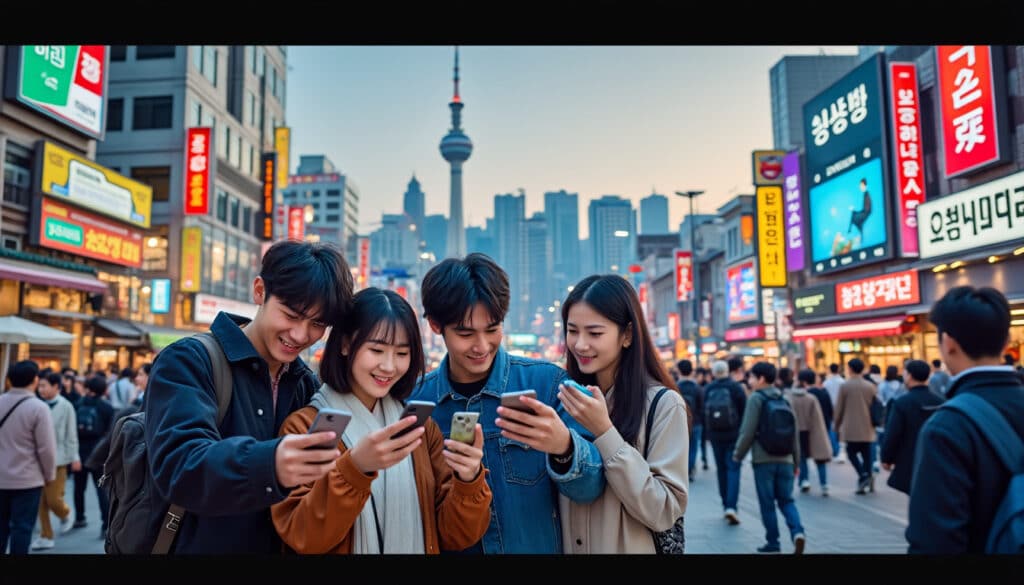
Calling and communication rules in Seoul
As Seoul continues to thrive as a bustling metropolis that harmonizes tradition with the adrenaline rush of modernity, understanding its unique communication nuances becomes essential for every traveler and expatriate. The intricate social protocols and communication etiquettes prevalent in Seoul…
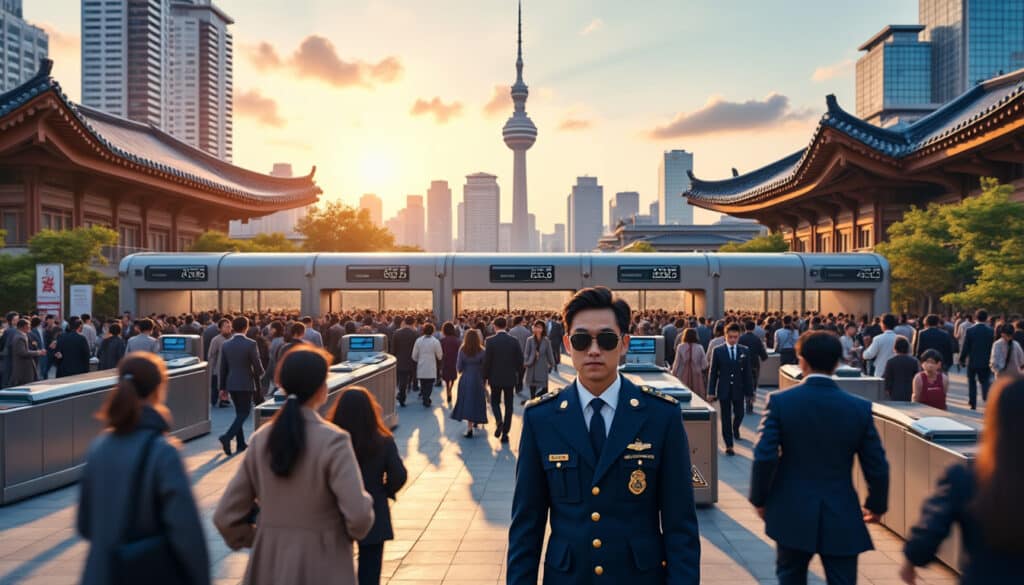
Criminal status and entry to Seoul
Exploring the prospects of traveling to Seoul can be an exhilarating journey into the heart of South Korea, a vibrant metropolis teeming with culture, innovation, and unforgettable experiences. However, for those who have a criminal record, the complexities of entering…
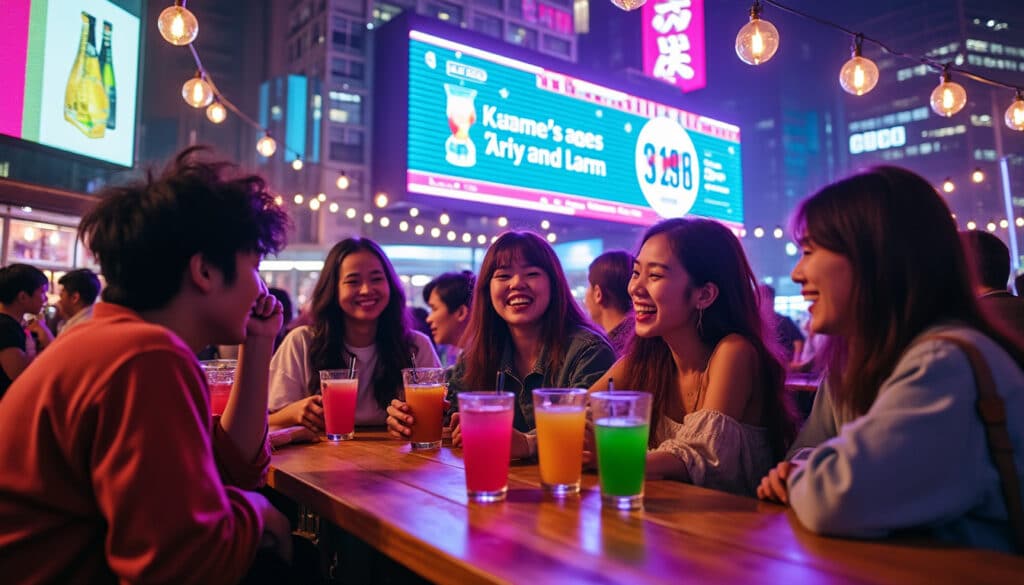
Drinking and age restrictions in Seoul
In the vibrant landscape of Seoul, where neon signs illuminate bustling streets and the aroma of street food fills the air, understanding the intricacies of age-related restrictions becomes crucial, especially for those looking to partake in the city’s dynamic nightlife.…
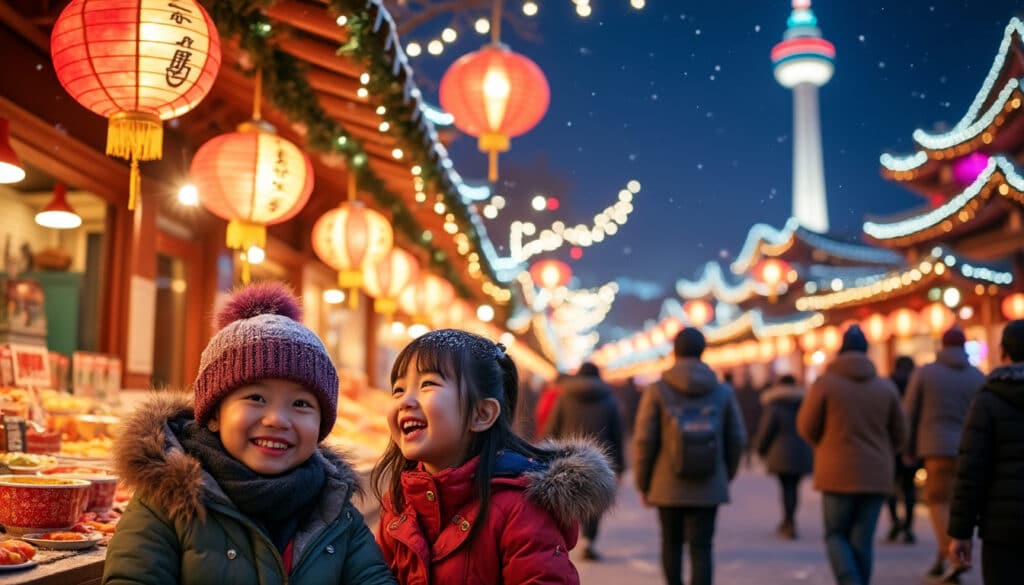
Seoul, the vibrant heartbeat of South Korea, orchestrates a symphony of cultural and historic charm throughout the year, drawing visitors from all corners of the globe. Known for its dynamic blend of tradition and modernity, Seoul’s holiday calendar is a…
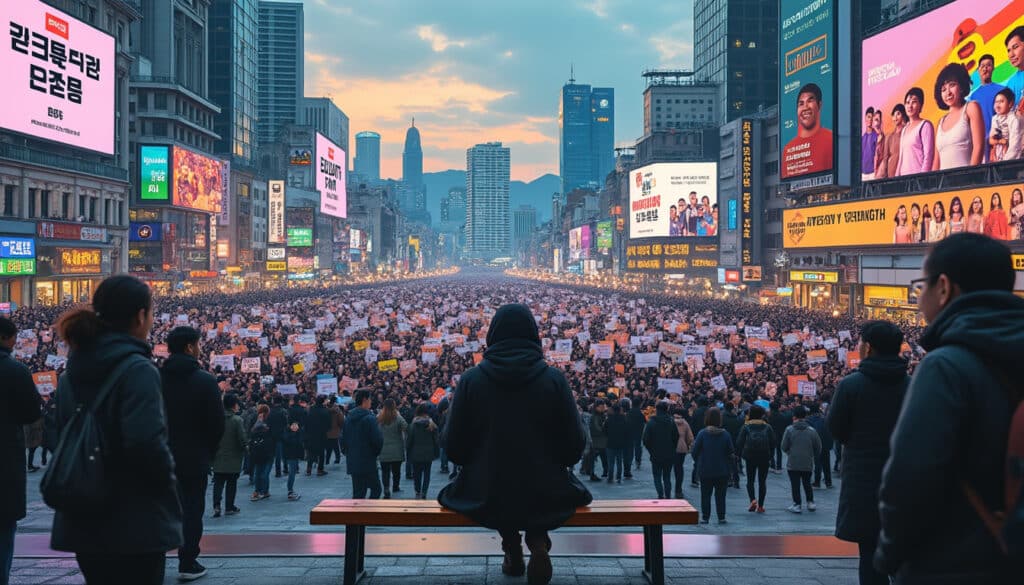
Social and discrimination issues in Seoul
The bustling metropolis of Seoul, with its towering skyscrapers and vibrant cultural scenes, is not just a hub of technology and fashion. It is also a microcosm of the broader social and discrimination issues that permeate South Korean society. From…

